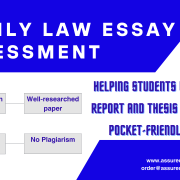Instructions on Assessment:
Background of the subject topic
It can be argued that organisations can generate greater effectiveness in a diverse, rapidly changing global environment by encouraging agreement on shared values and by jointly creating visions, goals, and strategies, both internally and externally. Organisations can foster trust, collaboration, equality, participation, shared values, visions, and goals which can be perceived as core strategic elements of organisational activity in a global field of action. Agreement and commitment can be maintained through dialogue by;
– Focusing on common concerns, identifying shared needs, and conflict resolution amongst the key stakeholders
– Encouraging self-reliance, problem solving and united action by the management practitioners, and
– Sharing important experiences and producing a synergy of perception, intellect and emotion with those who are impacted most.
In this way organisations can represent a more flexible, inclusive, human way of working, with increased opportunity for leading more satisfying working lives amongst their own employees. Strategic changes of various types and nature have been introduced in this regard and implemented extensively in business organisations in recent times
Assignment Tasks
You have already been asked to complete a range of seminar-based research and reflections on the
strategic changes undertaken by HSBC over the last two decades, and the associated change
management practices/problems in different contexts.
This particular assignment takes the format of an assessment portfolio, comprising three main parts:
PART 1: A research report, with a word limit of 1,000, on one of the particular HSBC change program implemented in the recent decades (post 1993). (40%)
More specifically, you need to provide accounts in this report on the following:
- Internal and external contextual factors which influenced the introduction of that particular change programme at HSBC
- An outline of the management strategy used by the managers and leaders concerned to execute these strategic changes.
- The actual challenges and difficulties experienced by the HSBC management team in managing these changes.
PART 2: An academic report, of a 2000 word limit, evaluating the implementation and resistance of the change management approach implicated in Part 1, from one of the three stakeholders’ perspectives: HSBC management team, HSBC employees concerned, customers and the respective national government (60%)
This report needs to clearly identify:
Assessment Brief – Level Five Undergraduate
U:\new ug teaching modules\new 277\Assessment brief UG Level 5 2015-16 HR0277 final version.doc Page 2 of 1
- Core issues relating to the change itself and associated change management strategy at HSBC in that context. (These should be outlined against appropriate theoretical frameworks or conceptual discussions, with linkages between theoretical explanation and the practical events to be made explicit).
- Specific concerns and problems drawing from a particular stakeholder’s point of view. (You must demonstrate your awareness of the practical change management issues at HSBC based on your chosen program).
- Advised approaches/recommendations for overcoming resistance to change, relating to your chosen stakeholder’s concerns and any other anxieties.
Part 3: Seminar-based portfolio evidences
As integral parts of this module learning, three learning documents (evidences) need to be produced throughout the semester to help you learn and prepare for this assessment task. They are to be attached as appendices in this part:
Please note that there is in general no maximum word limit applies to your personal learning and research documents, yet it is expected that each evidence shall be of at least 1 A4 page, type processed.
1. Managerial challenges in implementing changes and management skills required for dealing with such issues, due on week 6 (should be outlining your literature understanding in this subject area so far)
2. A summary report on the chosen change management program, due on week 10 (to outline in details on the change programme and management practices in a comprehensive and concise way)
3. A slide set about HSBC’s change management practice from one of the stakeholders viewpoint, per the group research findings/presentations, with clear indication about your own contributions, due on week 10 (this is to assess the impacts or implications of the change management program under discussion, from a specific point of view as specified by the tutor in the preparatory seminar sessions)
All the above three portfolio evidences need to be completed on the weeks specified, and to be uploaded to your specified file folder on the blackboard site for this module, BEFORE the seminar on that particular week.
Print out and attach the email that you sent out to your seminar tutor on week 12, per TLP
Failing to produce or incompletely presenting those required portfolio evidences will affect your overall marks in a negative way. Missing each of them will be awarded a – 5, with a total of – 15 if you did not upload any of those three learning evidences to the blackboard site by the end of week 10, or the end of week 12 with prior agreement from your seminar tutor.
For example, if the portfolio work has been awarded an overall mark of 65 for part 1 and 2, but you did not have anything from the blackboard site for part 3, your final mark will then be 50 (65-15) only. If you have achieved 70 for your work on part 1 and 2, but only uploaded 2 out of the 3 required evidences in part 3, then your overall mark will be 65 (70-5).
Assignment Deadline
Please ensure that you submit your completed assignment on time, per announcement of the UG office
Assessment Brief – Level Five Undergraduate
Please note that there will be no EXTENSIONS given unless students discuss their circumstances with their programme leader in advance of the deadline and you may have to begin the personal extenuating circumstances process.
Important note about ARNA regulations
The regulations specify that students must complete every assessment component contributing to the modules on their programme. This applies to all forms of assessment as defined in the module descriptor. Please note that:
- if any assessment component is not completed, students will be failed in the module even if the module pass mark has been achieved;
- if the requirements for referral specified in section 5 of ARNA 1 are met, a resit opportunity will be given;
- if unable to complete an assessment component because of extenuating circumstances, students should follow the procedure described in the Student Guide to Extenuating Circumstances 1 .
Guidance on Assessment:
Word Count
The word count is to be declared on the front page of your assignment. The word count does not include title page, contents page, glossary, tables, figures, illustrations, reference list, bibliography and appendices.
Summarising and compressing the information in your assignment into the word limit is one of the skills that students are expected to acquire, and demonstrate as part of the assignment process.
Word limits and penalties for assignments
If the assignment is within +10% of the stated word limit no penalty will apply. However, if the word limit exceeds the +10% limit, 10% of the mark provisionally awarded to the assignment will be deducted. For example: if the assignment is worth 70% but is above the word limit by more than 10%, a penalty of 7% will be imposed, giving a final mark of 63%.
Time limits and penalties for presentations
The time allocated for the presentation must be adhered to. At the end of this time, the presentation will be stopped and will be marked based on what has been delivered within the time limit.











